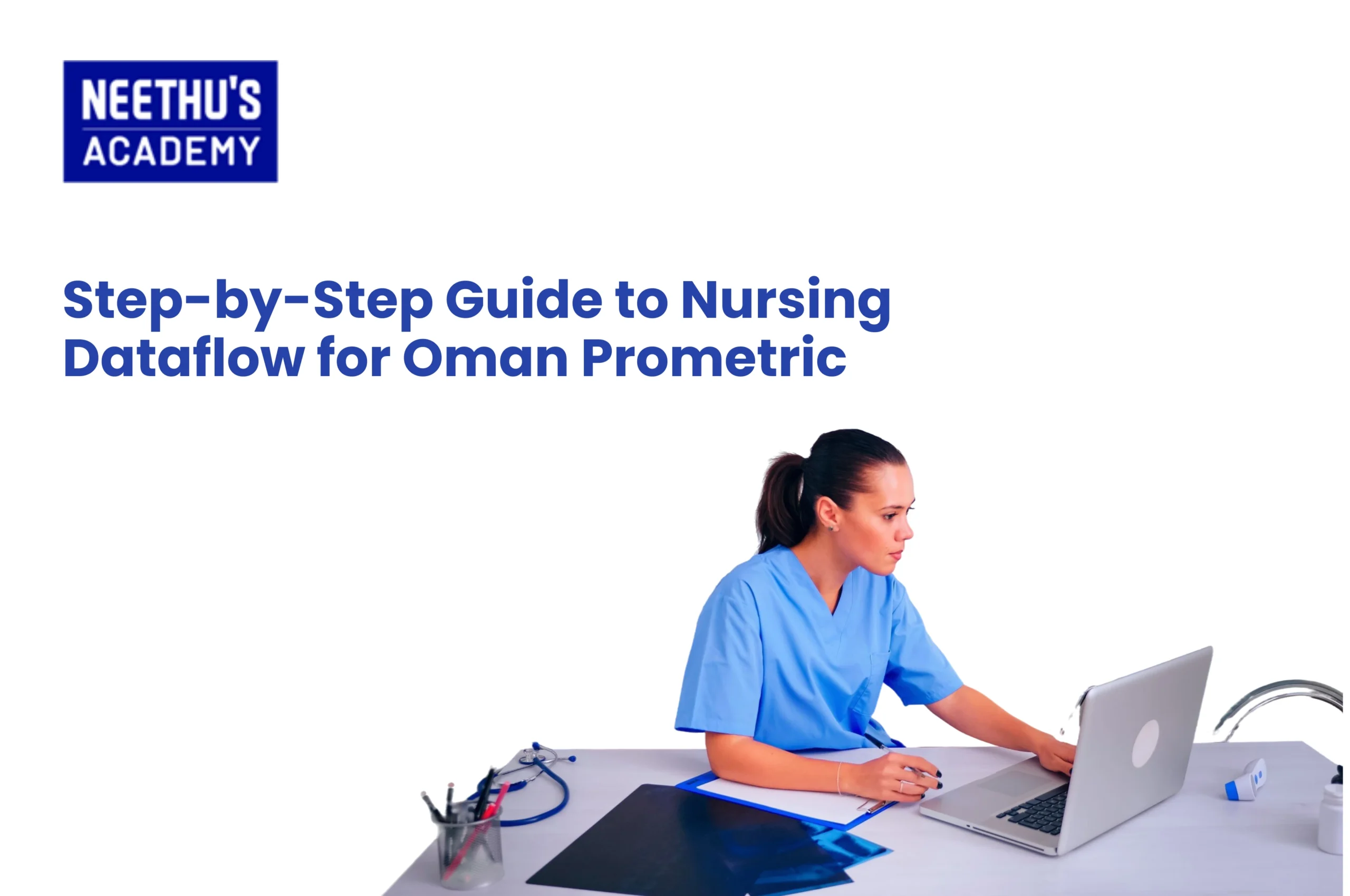Imagine you are running out of time and still have questions to complete! That would be the worst-case scenario while taking a…

A Beginner’s Guide to Digital Marketing: Strategies for Modern Success
In today’s fast-paced, digitally-driven world, businesses are in a spiral to innovate ways that help them stay ahead of the competition. Among many, digital marketing is one sure way of reaching, engaging, and retaining customers. In other words, this marketing approach enables any firm to use online platforms and tools to develop targeted campaigns that reach the perfect audience. But what exactly is digital marketing? How does it work? What are the benefits of digital marketing for businesses and people? We will answer these and more questions within this blog. So let’s dive in!
What is Digital Marketing?
Digital marketing is a way of promoting products, services, and brands using digital channels like websites, social media, email, search engines, and mobile apps. As opposed to traditional marketing, relying on physical mediums to print, engage in TV, and make use of the radio, digital marketing depends on online platforms to reach an audience across the globe.
Digital marketing is more focused and data-driven, hence can help companies capture the interest of the target audience through engagement in real-time. The different tactics of digital marketing include content marketing, social media marketing, and paid advertising integrated to provide a relevant link between businesses and their customers.
How Does Digital Marketing Work?
The very gist of digital marketing is to connect businesses with their consumers online. This begins with the identification of target audiences and the formulation of strategies specific to the engagement of these groups.
Audience Research: Understand who your target audience is, what they are interested in, and where they spend most of their time online.
Content Creation: Creating engaging and informative content-like blog posts, videos, or social media updates which will attract prospective customers.
Channel Distribution: Choosing appropriate digital channels for content distribution, whether social media, email, websites, etc.
Engagement and Interaction: Building a community for your brand through comments, likes, sharing, and direct messages.
Performance Analysis: Continuous analysis of results from campaigns about what is working and what needs to be optimized for better results.
Digital marketing has to be data-driven, allowing firms to track the efficiency of campaigns in real-time and change their strategies based on tangible results.
Types of Digital Marketing
There are a variety of digital marketing channels that provide many different ways to connect with audiences and drive business outcomes. Knowing these can help businesses identify the right approaches to achieve their objectives.
Search Engine Optimization (SEO)
SEO is an entire process that involves managing a webpage’s ranking on search engines like Google. The main focus of SEO revolves around the quality of the content, keywords, and the overall user experience. This, in turn, helps businesses gain organic traffic and increases the visibility of the platform. For instance, an SEO-optimized blog post may drive traffic for years with barely any investment involved.
Content Marketing
Content marketing is all about creating valuable, relevant content that will attract and engage a target audience. This can be in the form of a blog post, eBook, infographic, podcast, and more. The goal here is to deliver useful information to help someone solve a certain problem or answer a question.
Social Media Marketing
Social media marketing encompasses a wide array of platforms, including but not limited to Facebook, Instagram, LinkedIn, and Twitter. A business can communicate better with its audiences by posting posts or stories, or even running advertisements to increase brand awareness and customer loyalty. A properly run social media campaign, such as Nike’s “Just Do It” movement on Instagram, truly shows the strength of a brand in effectively driving engagement and sales.
Email Marketing
Email marketing is one of the most direct modes of digital marketing. Email campaigns are employed by businesses to send promotional messages, newsletters, or product updates to subscribers. It is effective for lead nurturing and retaining customer relationships. An example could be an e-commerce site mailing personalized product recommendations based on a customer’s browsing history.
Pay-Per-Click Advertising (PPC)
With PPC advertising, businesses can create ads to run on platforms like Google Ads or social media channels. Every time the ad is clicked, it charges money to the business. This is an instant visibility strategy that brings targeted traffic to websites. This includes search advertisements from Google where companies bid on keywords to see their ads on top of search results.
Affiliate Marketing
Affiliate marketing is done by collaborating with other businesses or influential persons to sell products. Affiliates get a commission for every sale that happens because of their promotional undertakings, so it is favorable to both parties. The affiliate program of Amazon has made it easier for millions of bloggers and website owners to create revenue by advertising its various products.
Influencer Marketing
Influencer marketing refers to the methods in which brands acquire access to products or services for target audiences using the reach and credibility of other influencers. In a sense, this kind of digital marketing works amazingly well for brands that want to reach out to a niche target market.
Mobile Marketing
Mobile marketing targets both smartphone and tablet users with applications, SMS, social media, and websites. By leveraging mobile marketing, businesses can enable users with personalized experiences, such as location-based promotions.
Benefits of Digital Marketing
Now that we have understood the basics, let us dive into some of the benefits of digital marketing and why it is a must for a business to exist in today’s times.
Cost-Effective
The cost-effectiveness of digital marketing is one of the major boons. Weighed against more conventional methods of marketing, such as TV ads or print media, digital channels are a very inexpensive way for any business to reach out to its target audience
Targeted Reach
With digital marketing, one can target particular demographics, interests, behaviors, and locations. This simply means you will be assured that your message reaches those likely to convert to achieve a better return on investment with effective marketing results.
Improved Engagement
Digital marketing helps your business communicate directly to your audience in real-time. Through comments, likes, and shares, businesses can join in direct contact with customers, respond to inquiries, and establish a community of loyal patrons of their brand.
Global Reach
Unlike traditional marketing, which was majorly cramped by geography, digital marketing will allow a business to attain a global audience. Be it a small local shop or a large multinational company, anything can be showcased through digital marketing to customers all over the world.
Flexibility
One other key benefit of digital marketing is flexibility. Businesses can experiment with different types of content, adjust campaigns on the fly, and pivot strategies quickly based on performance data.
Competitive Advantage
The modern business landscape is competitive, and without digital marketing, companies risk falling behind. Staying updated with the latest digital marketing trends ensures that businesses remain relevant and competitive in their industry.
How to Become a Digital Marketer
Since the demand for digital marketing is on the increase, this also constitutes an increase in human resources. These are some of the ways to be a digital marketer:
Learn the Basics
Begin with a deep understanding of the concepts of digital marketing: SEO, PPC, Content Marketing, and Social Media Marketing. Many online courses will give you a head start in learning the basics.
Gain Technical Skills
One needs to be both creative and technically inclined as a digital marketer. Familiarize yourself with several tools like Google Analytics, SEMrush, and marketing automation platforms. Knowledge in web design or copywriting and data analysis would be a plus.
Build a Portfolio
As you learn, build experience by building your own website or running digital marketing for a small business or nonprofit. This will give you hands-on experience to show potential employers or clients.
Stay Current
Digital marketing is one of those industries where each day trends and technologies are changing. Keep yourself updated by reading through the industry blogs, attending webinars, and getting engaged with other professionals in the field
Get Certified
Many employers like hiring individuals with certifications from leading platforms like Google, HubSpot, or Facebook. Your certificate indicates your skill and differentiates you in the competitive job market.
The Bottom Line
Living in a more digital world, digital marketing is no longer optional but highly essential for businesses willing to remain competitive and grow their customer base. From its cost-effectiveness to its ability to deliver personalized experiences, the benefits of digital marketing are vast and varied. Whether an entrepreneur looking to expand an online presence or a budding digital marketer, great opportunities for success can arise from a deep understanding of the nuts and bolts of this field. The application of appropriate strategies, tools, and channels helps businesses communicate with their audience effectively, improve conversions, and stay ahead in today’s digital era.
Related Blogs
- All Posts
- OET
In case you are immigrating to Canada or looking for higher studies in the French-speaking parts of the nation, then the TCF…
Feeling a bit overwhelmed about the OSCE? You're not alone! The Objective Structured Clinical Examination is a big step in your medical…
Course Enquiry
Latest Posts
- All Posts
- canada
- CBT
- DHA
- French
- GENERAL
- German
- Haad
- IELTS
- IQN NEW ZEALAND
- MOH
- NCLEX-RN
- NHRA
- OET
- OSCE
- Pearson Vue
- PROMETRIC
- PTE
- TOEFL
- Back
- NCLEX - NGN
- Back
- OET FOR PHYSIOTHERAPIST
- OET FOR PHARMACIST
- OET FOR DOCTORS



Frequently Asked Questions
The main types include Search Engine Optimization (SEO), Content Marketing, Social Media Marketing, Pay-Per-Click (PPC) advertising, Email Marketing, Affiliate Marketing, and Mobile Marketing.
Digital marketing works by leveraging online platforms to target specific audiences with content and ads. It uses data to track and measure performance, allowing businesses to refine their strategies in real-time.
Key skills include SEO, content creation, social media management, data analysis, and proficiency with digital marketing tools like Google Ads, email marketing software, and CRM platforms.
Digital marketing is crucial because it allows businesses to reach a global audience, engage with customers directly, measure campaign performance, and achieve higher ROI at a lower cost compared to traditional marketing.
Benefits include cost-effectiveness, targeted reach, real-time engagement, measurable results, and the ability to reach a global audience. It also allows businesses to personalize their messaging and boost conversions.
To become a digital marketer, start by learning the basics through online courses, develop technical skills in tools like Google Analytics, gain hands-on experience, and earn certifications to boost your credibility.
